The nursery rhyme “Humpty Dumpty” is one of the most well-known and beloved in the English language. For generations, we’ve all grown up picturing Humpty Dumpty as a fragile, egg-shaped character sitting precariously on a wall. But what if everything we thought we knew about this iconic figure was a lie?
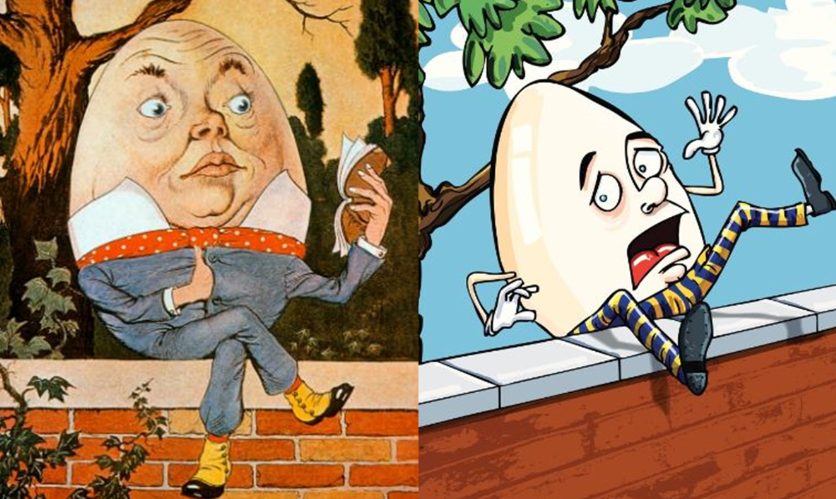
Recent revelations have challenged the long-held belief that Humpty Dumpty was always meant to be an egg. In fact, the origins of this classic character are far more complex and intriguing than the simple nursery rhyme would have us believe.
Some historians believe that Humpty Dumpty may have originally represented something much more significant than a mere egg. One theory, supported by Jane Etheridge, Vice Chair of the Federation of Children’s Book Groups, suggests that Humpty Dumpty was a symbolic representation of a Royalist cannon used during the English Civil War.
According to this interpretation, the cannon, positioned on a wall, was said to have fallen and been irreparably damaged – a possible metaphor for the Royalist defeat. This would make Humpty Dumpty a character steeped in political symbolism, rather than the innocent egg we’ve come to know.
Another fascinating theory links Humpty Dumpty to the downfall of King Richard III at the Battle of Bosworth Field in 1485. In this context, Humpty Dumpty could symbolize the king himself, whose defeat marked the end of the Wars of the Roses and the beginning of the Tudor dynasty. The “great fall” in the rhyme could then be interpreted as the king’s dramatic and final defeat.
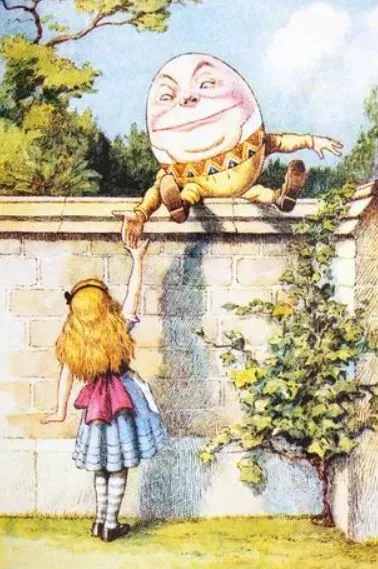
Humpty Dumpty is traditionally depicted as an egg, but the rhyme itself doesn’t mention this. Image Credits: Getty
The English Civil War was a period marked by intense propaganda, much of which came from the Roundheads (supporters of Parliament) against the Royalists. Some suggest that the character of Humpty Dumpty may have been used as a satirical figure to represent the fragility and eventual downfall of the Royalists. This interpretation would further reinforce the idea that Humpty Dumpty was never intended to be an egg.
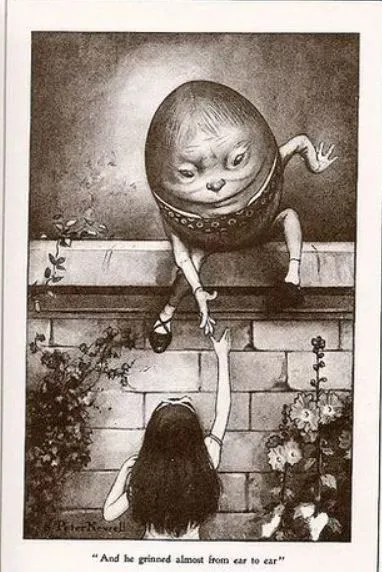
The nursery rhyme’s lyrics only describe Humpty Dumpty falling from a wall and breaking. Image Credits: Getty
So, how did this potentially political or historical figure become an egg? The transformation likely began with artistic interpretations that sought to make the rhyme more visually appealing and accessible to children. The idea of a fragile egg that shatters upon falling is a powerful visual metaphor, one that perfectly fits the theme of the nursery rhyme. Over time, this interpretation stuck, and the egg-shaped Humpty Dumpty became the dominant image in popular culture.
The recent resurgence of interest in Humpty Dumpty’s true origins can be traced back to social media, where author Holly Bourne sparked a viral discussion by questioning the widely accepted depiction of the character as an egg. Her post on X (formerly Twitter) brought this issue into the spotlight, causing many to rethink what they thought they knew.
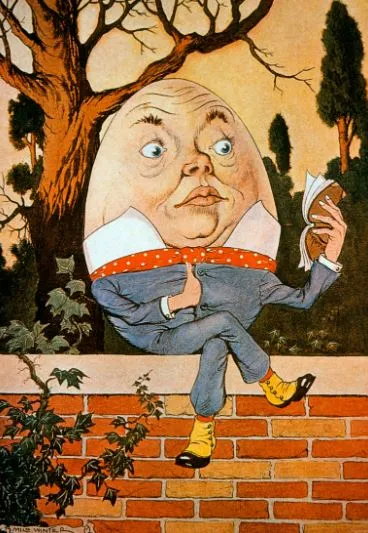
Author Holly Bourne questioned why Humpty Dumpty is considered an egg despite the lyrics. Image Credits: Getty
The public’s response to this revelation has been a mix of shock, curiosity, and humor. Some people joked about their lifelong belief being shattered, while others pointed out that many nursery rhymes have darker, more complex origins than we often realize.
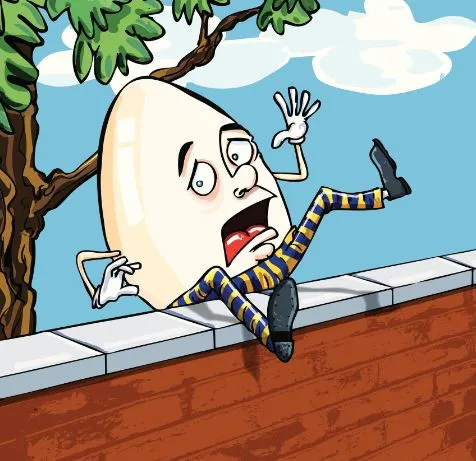
Many people are surprised and “haunted” by this realization, having assumed he was always an egg. Image Credits: Getty
The Humpty Dumpty revelation is a reminder that many nursery rhymes have layers of meaning that go beyond the surface. These rhymes were originally meant to convey moral lessons, political satire, or commentary on contemporary events, wrapped in a form that was easy to remember and pass down through generations.
As stories are retold, they often take on new meanings and interpretations that reflect the values and needs of the time. In the case of Humpty Dumpty, what may have started as a metaphorical or symbolic character has been transformed into an iconic image that is now a staple of childhood education and entertainment.
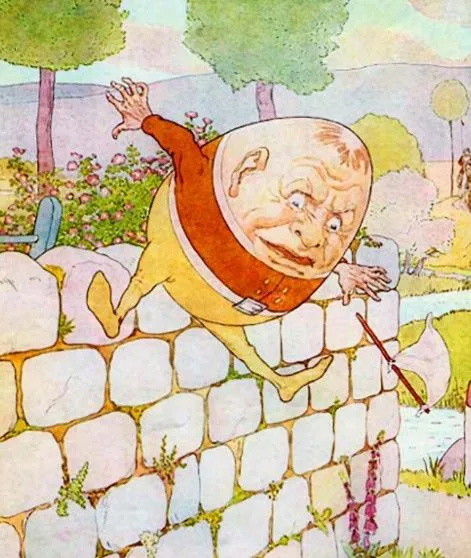
Some theories suggest Humpty Dumpty could symbolize historical events or figures, not an egg. Image Credits: Getty
The story of Humpty Dumpty’s evolution from a possibly political figure to a fragile egg is a perfect example of how folklore adapts and changes over time. While the truth about Humpty Dumpty’s origins may be surprising, it also serves as a reminder of the fluid nature of storytelling and the importance of looking beyond the surface to uncover the deeper meanings and cultural shifts that shape our understanding of the world.


